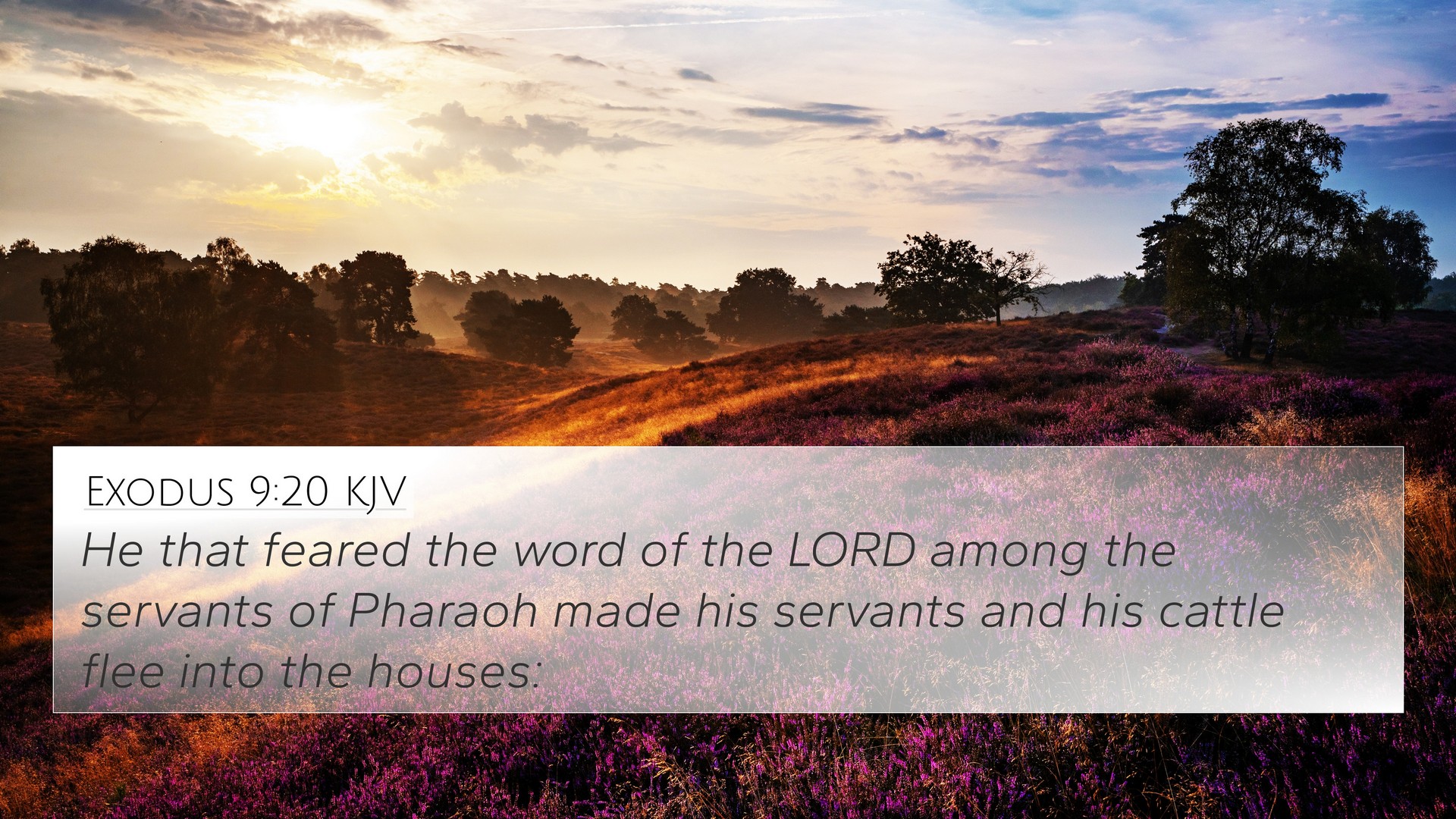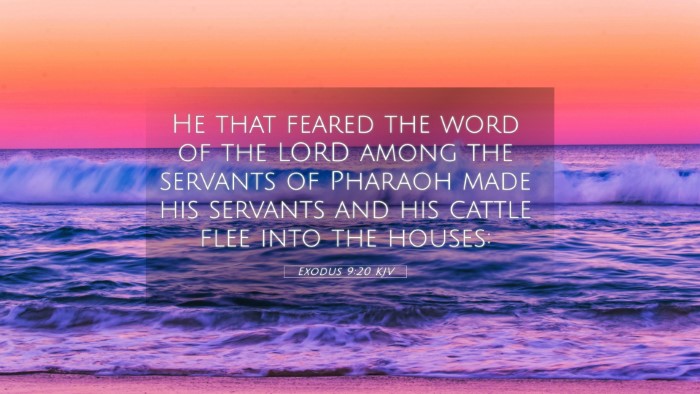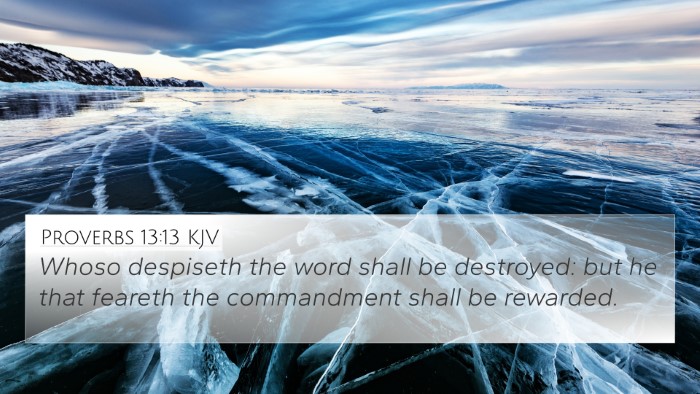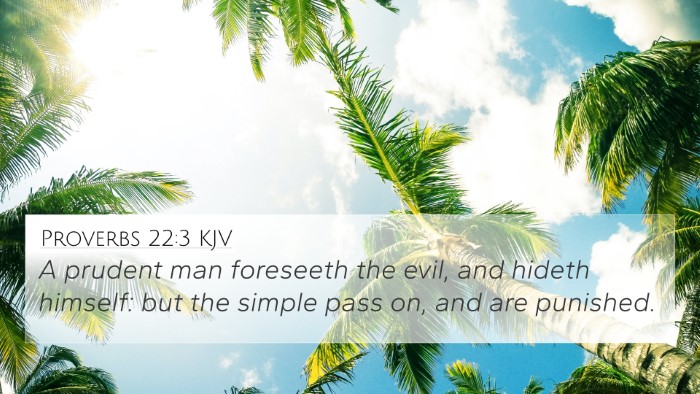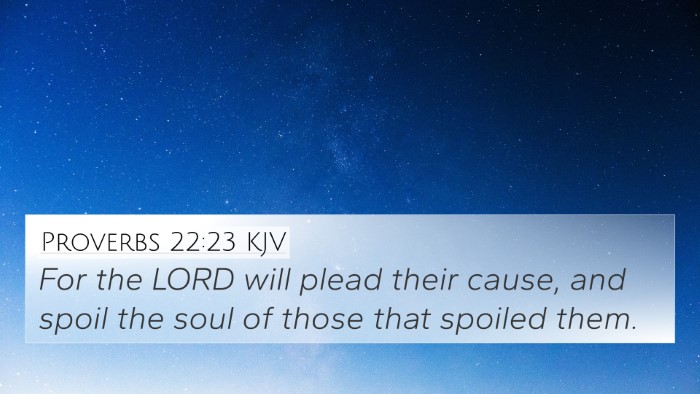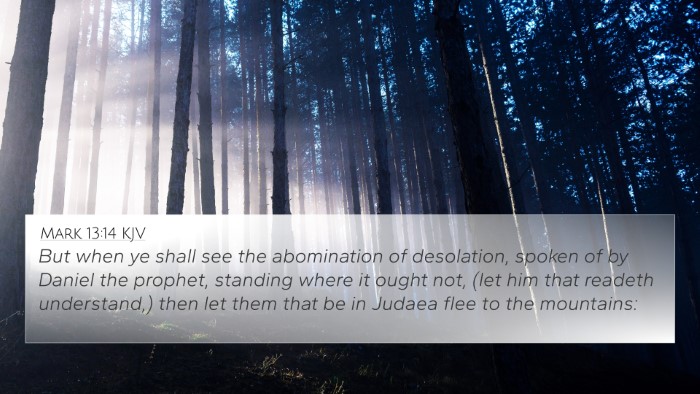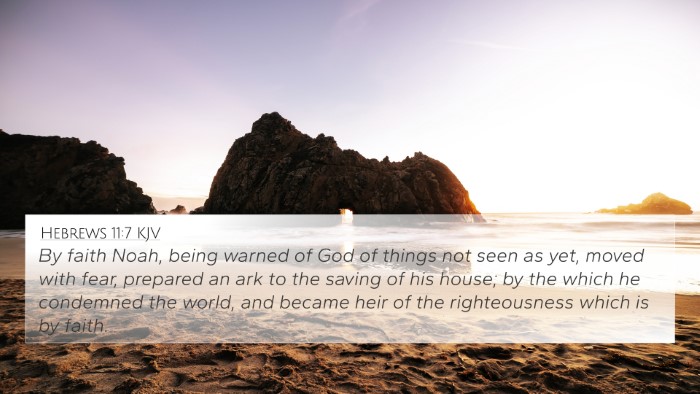Understanding Exodus 9:20
Exodus 9:20 states: "He who feared the word of the LORD among the servants of Pharaoh made his servants and his livestock flee to the houses." This verse captures a pivotal moment during the ten plagues of Egypt, illustrating the response of some Egyptians to God's impending judgment.
Summary of Meaning
This scripture emphasizes the distinction between those who heed God's warnings and those who remain obstinate. The phrase "feared the word of the LORD" denotes a healthy respect and reverence towards God's commands, resulting in immediate action to protect themselves and their livestock.
Insights from Commentaries
-
Matthew Henry:
Henry highlights that fearing God often leads to decisive action in the face of divine judgment. Those who acknowledged the weight of Moses's message took practical steps to safeguard their lives, showcasing a faith that is responsive and proactive.
-
Albert Barnes:
Barnes points out that this act of preparation indicates a clear split among the Egyptians. Some began to see the futility of opposing God, and their fear drove them to repentance and action, contrasting sharply with Pharaoh's stubbornness.
-
Adam Clarke:
Clarke notes that this verse serves as a reflection of human nature; when faced with calamity, those who are wise will heed warnings. His commentary emphasizes that this decision to flee to safety is an application of wisdom amidst chaos.
Bible Cross-References
This verse is richly interconnected with various other scriptures throughout the Bible, demonstrating the thematic continuity of God's judgment and mercy. Here are notable cross-references:
- Exodus 9:6: "And the livestock of Egypt died; but of the livestock of the children of Israel died not one." - Illustrates the discernment between God's people and the Egyptians.
- Deuteronomy 6:24-25: "And the LORD commanded us to do all these statutes... and it shall be our righteousness..." - Highlights the benefits of revering God’s word.
- Proverbs 1:7: "The fear of the LORD is the beginning of knowledge..." - Emphasizes the importance of reverence towards God in acquiring wisdom.
- Job 28:28: "And unto man he said, Behold, the fear of the Lord, that is wisdom..." - Connects wisdom with respect for God, reflecting the response of the Egyptians in Exodus 9:20.
- Matthew 24:42-44: "Watch therefore: for ye know not what hour your Lord doth come." - A call to vigilance, akin to the actions of those who feared God's word.
- Luke 12:4-5: "And I say unto you my friends, Be not afraid of them that kill the body..." - Further emphasizes the importance of fearing God over humans.
- Hebrews 10:31: "It is a fearful thing to fall into the hands of the living God." - Reinforces the principle that acknowledging God’s power is crucial for our well-being.
Thematic Connections
The themes surrounding Exodus 9:20 resonate strongly with concepts of divine protection, human responsibility, and the urgency of responding to God's warnings. To further explore these concepts, consider the following:
- Fear of God vs. Stubbornness: The contrast between those who fear God’s word and Pharaoh’s refusal provides a compelling study in human responses to divine authority.
- Faith in Action: Fearing God leads to actions that show obedience, emphasizing the importance of not just belief, but also the application of that belief in our lives.
Practical Applications
Understanding Exodus 9:20 can motivate believers today to evaluate their own responses to God’s word. We can ask ourselves:
- Are we responsive to God's warnings and commandments?
- What practical steps can we take to show our reverence for God's authority in our lives?
Conclusion
Exodus 9:20 provides a profound lesson on the importance of heeding God's word. Through the insights of renowned commentators and the cross-references to other biblical texts, we can appreciate the depth of this passage. It compels us to not only fear God, but also to act upon that fear with wisdom and preparedness.
